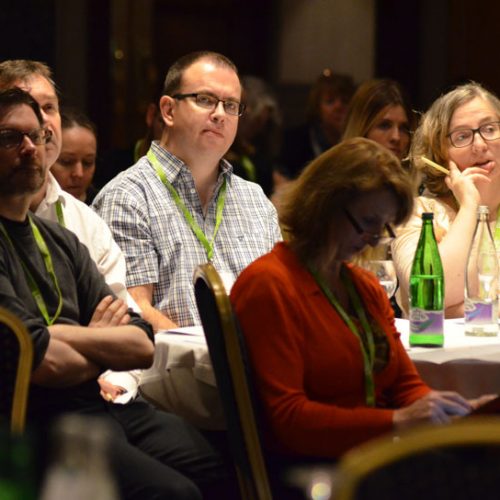Kirsten Watson from Fife College reports back from CILIPS Autumn Gathering 2017
Category: Blog, Branches and Groups
The following is a guest blog about the Autumn Gathering from Kirsten Watson, Fife College. Kirsten’s place was funded by the Academic and Research Library Group Scotland
Despite being a librarian for over 20 years, this was the first time I had attended a CILIPS event and all I can say is I can’t believe I waited so long.
The day for me was enlightening; meeting librarians from a wide range of backgrounds and roles, hearing about fantastic projects, campaigns and services that libraries from across the sectors are involved in, and listening to great keynote speakers who inspired their audience.
The range of sessions on offer was incredibly diverse, from professional ethics to user engagement through social media to the mind-boggling role of a Wikimedian in Residence. It was difficult to pick only 4 to attend.
Since the Library service at Fife College is currently developing a course for our students on ‘Evaluating websites and identifying fake news,’ I felt the ‘Combating ‘fake news’’ session from Ferret Scot was very timely. The session was led by Alastair Brian, Fact Checker at Ferret Fact Services, the fact checking service (grant funded by Google’s Digital News Initiative) from The Ferret, an independent investigative journalism platform.
Alastair took us through the methodology used by Ferret Fact Services to check the claims and counter claims of politicians, public figures and bodies and others to determine how true or false these statements are on a sliding scale of True right through to FFS! (For Facts’ Sake!). Alastair also looked at why ‘fake news’ has exploded recently with the increase in people using social media for ‘news’ combined with trust in mainstream media at an all-time low.
One of Alastair’s most interesting points was that most fact checked articles were neither totally true nor totally false but often a mixture of fact, opinion, bias and occasionally downright lies.
It is this sifting of facts from within the spin and bias of a source that can be difficult for students (or indeed any of us) and as Alastair pointed out, a key challenge is how to reach those users who are not minded to use a fact checking service.
I came away from the session convinced that courses such as the one we’re developing at Fife College are essential to equip students with the skills necessary to navigate the current news and media climate.
